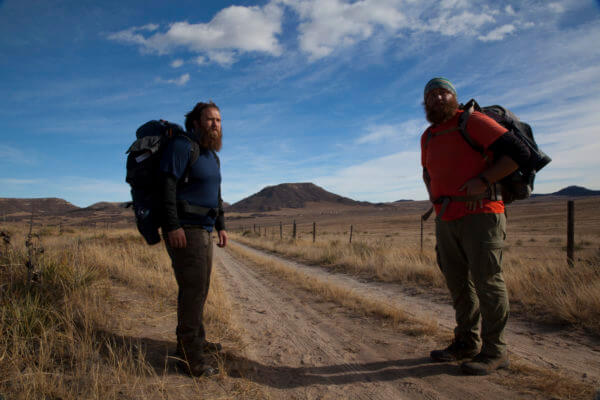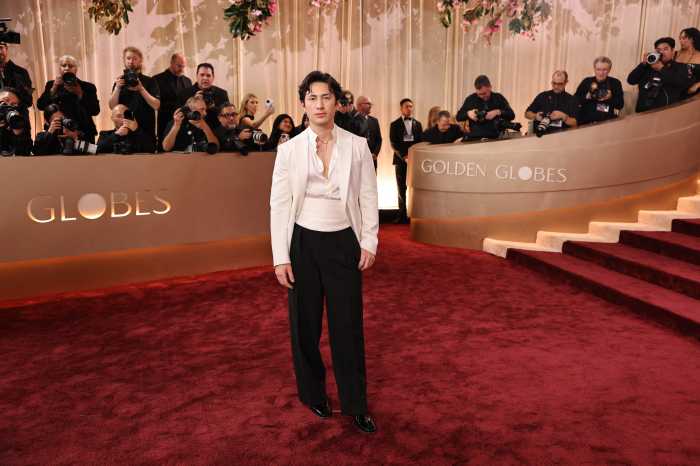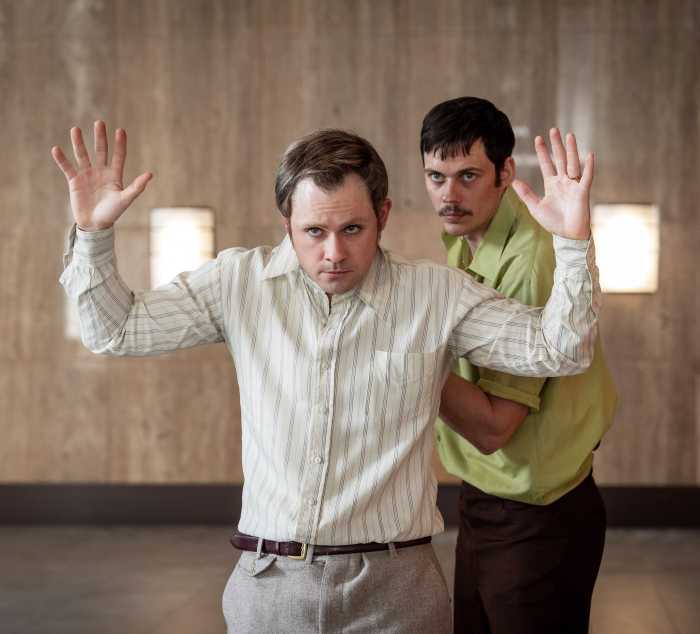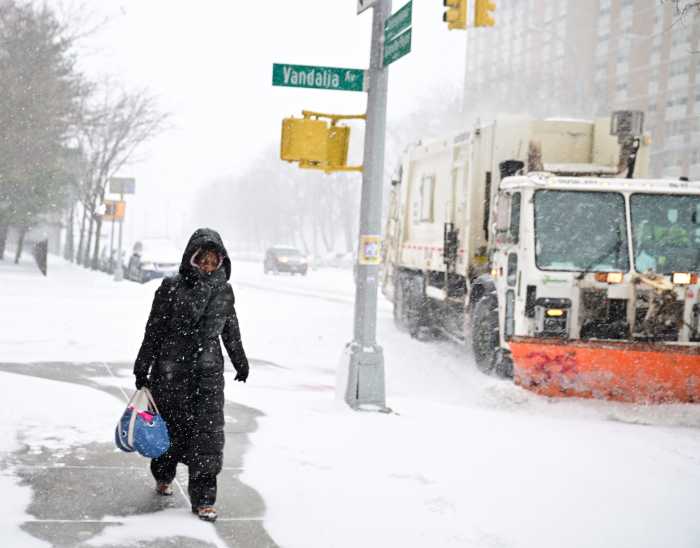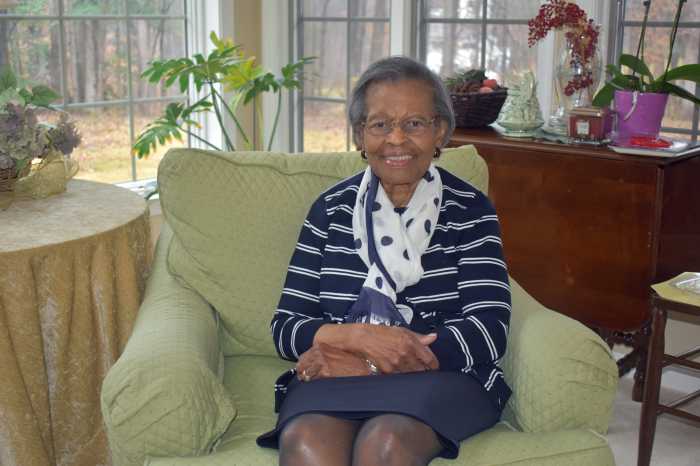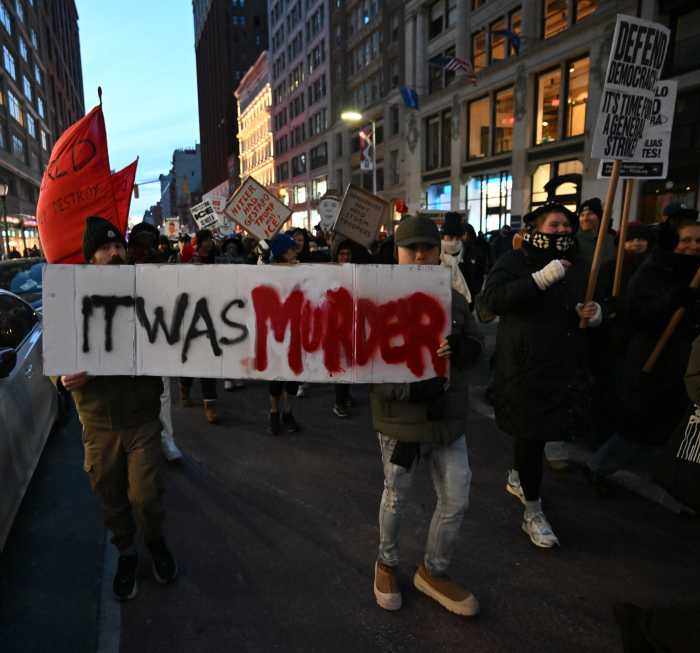Tom Voss and Anthony Anderson in Michael Collins’ documentary “Almost Sunrise.” | ARGOT PICTURES
Tom Voss and Anthony Anderson are two ex-soldiers who have been suffering from “moral injury,” a form of PTSD where soldiers suffer a “wound to the soul” because they have done things in battle at odds with their moral beliefs. These men, who served in Iraq, are grappling with actions that may have been justified, but they seek forgiveness for their responsibility in the results.
Having struggled with fallout including alcoholism and anger, the two men decide to embark on the “Veteran’s Trek,” a 2,700 mile journey from Milwaukee to Santa Monica on foot. Their 155-day journey is meant to clear their heads and create awareness about soldiers at risk of committing suicide during or after their tours of duty.
Michael Collins chronicles the journey of veterans
Out gay filmmaker Michael Collins chronicles the lives and experiences of Voss and Anderson in his inspiring documentary, “Almost Sunrise.” The filmmaker spoke with Gay City News about the issues of moral injury, anger, and forgiveness.
GARY M. KRAMER: How did you get Tom and Anthony to trust you to tell their story?
MICHAEL COLLINS: They basically interviewed me. I had to be myself and sincere and open with my intentions, and they felt it was totally in line with what they wanted to do with the walk. They wanted to help themselves, but also bring awareness to the rest of the country about what veterans are facing. I thought if we are able to capture their healing on film that can be very inspiring for a lot of people. They saw the value of a larger film being made about this journey. They trusted me with their families. It didn’t take us long to decide we were all on the same mission.
GMK: Tom and Anthony, along with other soldiers profiled in the film, have a difficult time with expressing their emotions. How did you get them to reveal their thoughts and feelings for “Almost Sunrise?”
MC: They are experienced talking about some of this stuff. They worked as peer mentors for other vets in the veterans’ service space. That’s where they met. It was about creating a space where they felt comfortable.
With Tom, it wasn’t easy. Not that he didn’t trust us, but he was more emotionally closed down. That was a real challenge to have a main character who doesn’t speak a whole lot. That was a little frightening for me as a filmmaker.
So I had to think of other ways to use this medium to convey that — to show his quietness and make the audience experience his emotional state of mind through non-communication.
GMK: About a third of the film is focused on the trek itself. Can you talk about how you chronicled the story before, during, and after the trek?
MC: I wanted to spend time with the men before the journey so the audience would “go along” with them. You needed to feel the stakes are high and this journey is urgent. Tom saw no other options; he had no choice but to put on a backpack and walk for five and a half months. I had to capture as much as I could. It was an internal journey, not just a physical one. When we got to the end, Tom’s journey was going to continue, and that’s why we stayed in production for another few months.
GMK: There are several scenes that depict the moral injury that forms Tom and Anthony’s particular form of PTSD. Can you talk about that issue?
MC: Moral injury, as I’ve grown to understand it, is characterized much more by guilt and shame beyond the fear-based trauma of post-traumatic stress shock. It really brings into focus the human cost of war beyond the obvious physical injuries and casualties. It brings up questions about the morality of war and sending people in to kill other people.
GMK: As a gay man, how do you choose your subjects and stories to tell?
MC: My approach to filmmaking and life is much more from the space of the heart, an emotional connection, not the head, which is intellectual. So when I make films, they aren’t going to be essay films about an issue, but an emotional journey about the issue. I allow the intellectual stuff to come out organically. We’re all human. That’s what drives me — creating an emotional connection to someone they don’t think they can relate to.
I’m growing and moving out of my comfort zone. I’m walking across the country with veterans as a lefty New Yorker. When you do that, you see how much you have in common with these people that the media tries to convince us are different than we are.
ALMOST SUNRISE | Directed by Michael Collins | Argot Pictures | Opens Jul. 14 | IFC Center, 323 Sixth Ave. at W. Third St. | ifccenter.com

